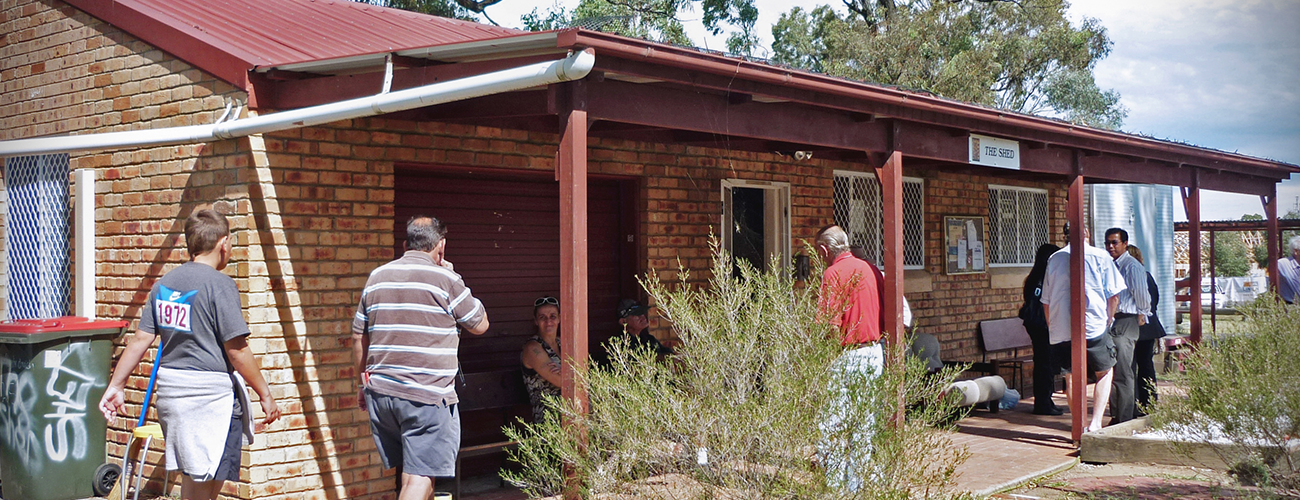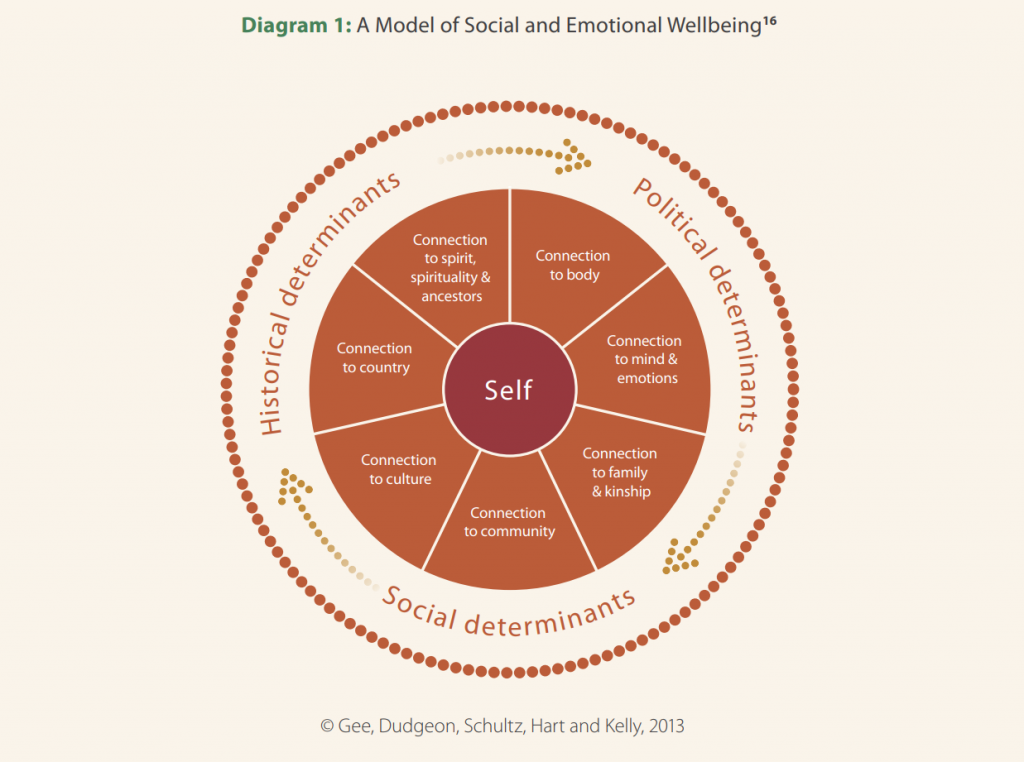
Research shows that almost 50% of the burden of disease for First Nations Australians is due to modifiable risk factors, with mental health and substance use the biggest contributor[i]. Almost a quarter of First Nations Australians also self-report facing a diagnosed mental health or behavioural challenge[ii].
Shifting the narrative on health in Western Sydney begins with taking a holistic and community-led approach to care services. This is why WentWest is proud to work with multiple First Nations-owned, First Nations-led service providers who co-design culturally-appropriate programs to best support the community, including The Shed, Marrin Weejali Aboriginal Corporation, Baabayn, Western Sydney Integrated Team Care and Aboriginal Counselling Services.
The Shed
The Shed in Mount Druitt has been a core part of the Western Sydney community for almost twenty years, ensuring community members have access to free, culturally-appropriate, wraparound support, including help with emotional distress, social isolation, housing, financial hardship and legal issues. The Shed is set in a safe, welcoming environment where people can share their stories in a non-judgemental setting. Coordinators and caseworkers support community members build on their strengths in a culturally-safe way and help re-direct them to additional service points and care pathways. Their regular activities include:
- Free Lunches (every Wednesday): Free weekly lunches create a space to share food and stories. The Shed staff ensure a number of service providers are there to chat and form relationships with people who may need their assistance. The lunch provides a casual and informal way for visitors at The Shed to gain access to the services they need.
- Men’s Circle (every Thursday): The Men’s Circle was started by a former client who wanted to share his lived experience and build a space for people to openly talk through their issues
- Drug and alcohol group (every Thursday): the group support individuals managing alcohol and other drugs dependency or gambling issues
- Men’s Group Yarning Circle (every Friday) – focuses on day-to-day issues, getting emotions out in the open, and connecting people to each other and other services that can help them. The group has counsellors and people from other men’s groups who also participate
- Cultural Activity Group (Thursdays and Fridays) – Men’s Business: a cultural activity group established to promote wellbeing and a sense of community
- Runners and Walkers Group: participants from across Mount Druitt walk alongside service providers to build connections, get out into the environment and become more active
- Bring Your Bills Day (annually): community members receive advice on paying their bills, financial literacy, budgeting, and dealing with debt
From mid-January to mid-April, The Shed provided services to 1,064 community members, 46% of whom were supported by a cultural worker.
A regular attendee of The Shed shared, “After meeting and talking to people, I realised I wasn’t alone…I suffer from PTSD from being taken away, and it comes in waves. You might wake up and have a miserable morning, but coming here, life is not so bad”.
Contact The Shed Mount Druitt: (02) 9628 7396
National Strategic Framework
Read about the National Strategic Framework for Aboriginal and Torres Strait Islander Peoples’ Mental Health and Social and Emotional Wellbeing, which proposes a social and emotional wellbeing approach against seven overlapping domains. The Framework was developed under the guidance of the Aboriginal and Torres Strait Islander Mental Health and Suicide Prevention Advisory Group.

[i] Australian Burden of Disease Study Impact and causes of illness and death in Aboriginal and Torres Strait Islander people 2018, AIHW, DOI:10.25816/xd60-4366
[ii] ABS National Aboriginal and Torres Strait Islander Health Survey (NATSIHS) 2018-19. Australian Institute of Health and Welfare
6 July 2023